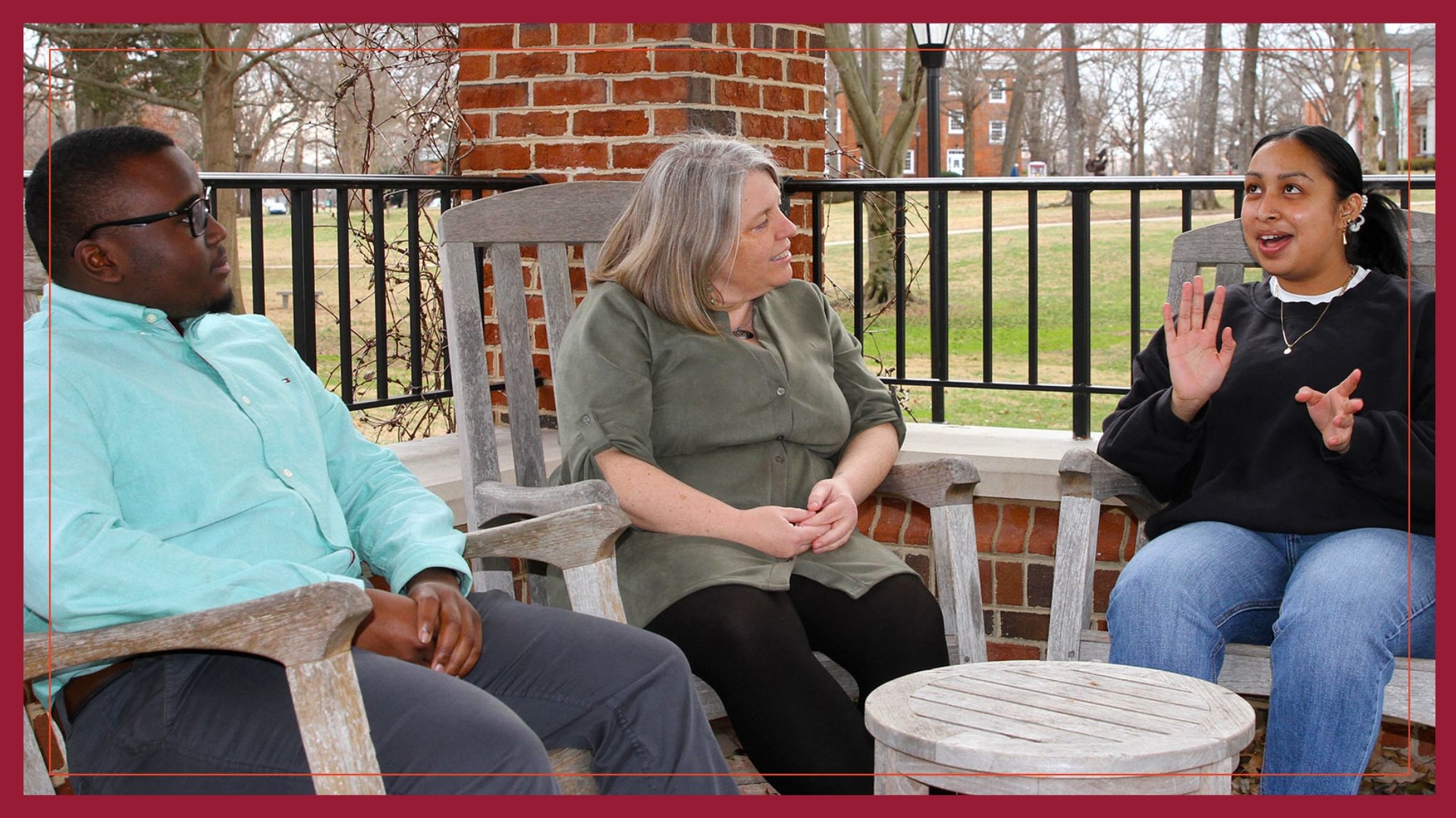
Starting with the 2023-24 academic year, Guilford students will experience a new calendar, with two 14-week semesters followed by a three-week intensive course in the spring. This change came about in part thanks to the work of the new Student Advisory Board, a group organized by Provost Maria Rosales to improve the lines of communication between students, faculty, staff and administrators.
“I’m interested in making the student experience better, both in and out of the classroom, and the only way to do that is to hear from the students first hand."
“One of the things I love about my job is getting to talk with students,” Maria says. “But I found that I was mostly hearing either from students who were doing exceptionally well or those who were struggling. I wanted to find a way to learn more about the day-to-day issues facing our student body.”
In an effort to make that a reality, Maria pulled together a group of 15 students to serve on the inaugural Student Advisory Board, which started meeting in spring 2022. The board was formed to help the Provost gain first-hand knowledge from students about what's going well and what can be improved.
“I’m interested in making the student experience better, both in and out of the classroom, and the only way to do that is to hear from the students first hand,” Maria says.
“There are representatives from all different groups, such as the Black Student Union and the Pride group, which helps us learn more about what’s happening on campus,” says Starlynn Mendez ’23.
Making an Impact
The Student Advisory Board made an immediate impact on campus life. The calendar change is one of the first big policies on which the board had influence.
“What we were hearing from the students was that the 3-12, 12-3 calendar makes it more challenging for some students to get the courses they need in a timely manner for graduation due to fewer course offerings and more time-slot conflicts,” Maria says. “However, they do enjoy the unique offerings of the three-week intensive class. Through discussion with the students and coordination with faculty and staff, we were able to find a new plan that addresses their concerns while keeping a three-week time slot.”
Not everything the board tackles is as big as the calendar change, and even minor changes can make a big difference. “We found out that many students were hesitant to go to resume-review seminars, thinking they had to have a completed resume in order to attend,” Maria says. “Fixing that was as simple as changing the name of the program to take out the word ‘review.’”
Other topics discussed include finding ways to communicate financial information more effectively for students who aren’t familiar with reading spreadsheets and budgets. They also addressed the hours that dining services are open to allow more flexibility in meal planning. Work on these issues is ongoing.
“I wanted to be part of this board to learn other people’s point of view, but I have also been impressed that Maria takes time out of her day to listen to the students,” says Deon McFarland ’24.
Opening Lines of Communication
Including a diverse group of students has ensured that different perspectives of campus life are addressed.
“There are representatives from all different groups, such as the Black Student Union and the Pride group, which helps us learn more about what’s happening on campus,” says Starlynn Mendez ’23. “For example, I knew how things were affecting the Latino population from my own personal experience, but being on this board shows how different things affect all of us.”
Creating the Student Advisory Board has also provided a way to let students know they’re being heard and their concerns are being addressed.
“I wanted to be part of this board to learn other people’s point of view, but I have also been impressed that Maria takes time out of her day to listen to the students,” says Deon McFarland ’24. “We have only met a few times, but I can already see that our board is going to be able to make change happen to continue to improve student life at Guilford College.”
Looking ahead, Maria said she hopes that “the Student Advisory Board will be one of the ways that the college continues to be a learning institution — for administrators as well as for students. It is exciting to brainstorm together about ways to make the college even more of what it aspires to be. Even when the conversations are about tough topics, I am glad we are able to have them together.”
To get involved with the next Student Advisory Board, contact provost@guilford.edu.

